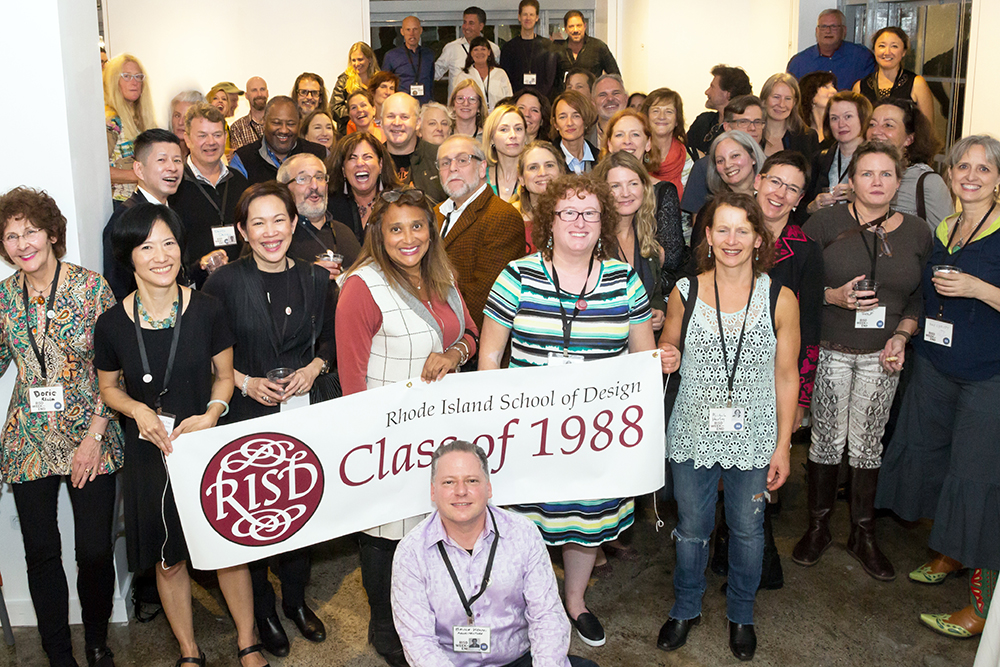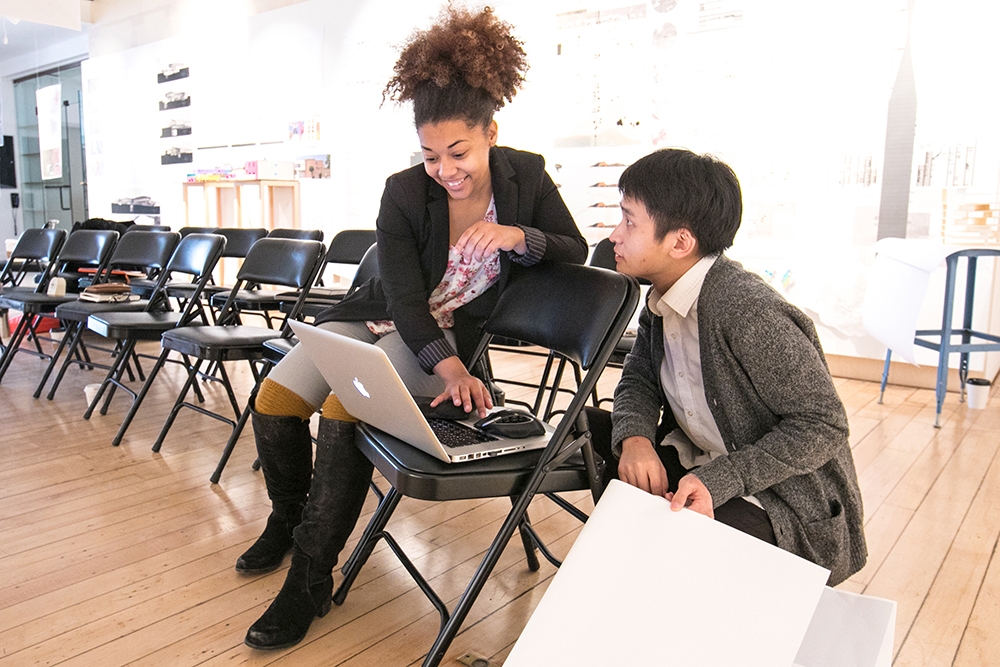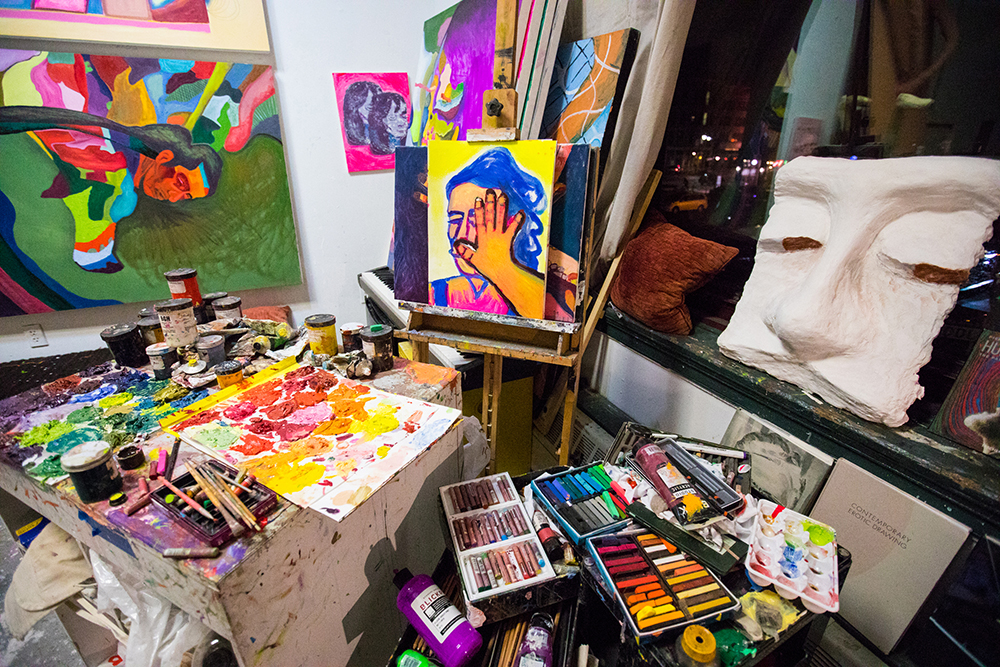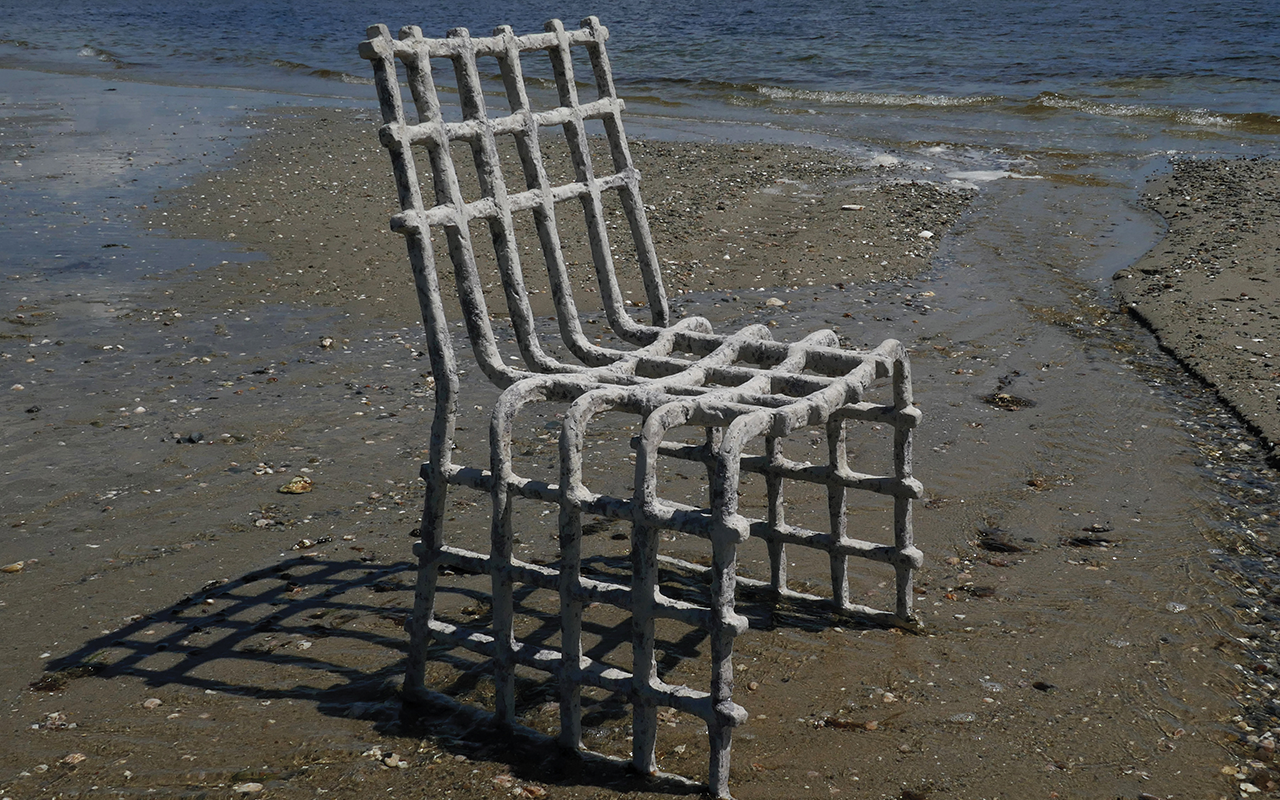
Nature, People, Planet
RISD teams’ innovative sustainability projects win Terra Carta Design Lab competition top honors
Democratizing the process of cleaning up polluted waterways through ingenious devices made from the root systems of mushrooms. Transforming shellfish waste into premium architectural materials and objects, creating a sustainable circular economy along the way. These two forward-thinking ventures, called BIOPOD and Shellf Life, earned teams of RISD students and alumni top honors in the 2024 Sustainable Markets Initiative’s Terra Carta Design Lab (TCDL) competition. TCDL, a global design challenge seeking student-led solutions to the climate and biodiversity crisis, helps innovative projects focused on sustainability scale up and take their designs to market with £100,000 (nearly $127,000) in funding and professional guidance. His Majesty King Charles III, in his former role as the Prince of Wales, founded the Sustainable Markets Initiative (SMI) at the World Economic Forum in Davos, Switzerland in 2020. He then launched the TCDL in 2021 with renowned designer Sir Jony Ive HD 09 in partnership with the Royal College of Art in London. As SMI’s mandate, Terra Carta’s mission is “to build a coordinated global effort to enable the private sector to accelerate the achievement of global climate, biodiversity and sustainable development goal targets.”
Terra Carta derives its name from the Magna Carta, which in 1215 provided the foundation for individual rights in the English philosophy of law. Echoing that foundational text, Terra Carta aims to give “fundamental rights and value to Nature, ensur- ing a lasting impact and tangible legacy for this generation.” The competition encourages art and design students and young alums to use their unique skills and creativity to confront the climate crisis. “The lab elevates the rigorous and imaginative ideas from all these students,” Ive says, “and demonstrates the power and importance of multidisciplinary design and collaboration in meeting global challenges.”
RISD was the only US-based school invited to participate in the competition. Design teams were encouraged to recognize the importance of local traditions, languages, products and cultures while pursuing the goal of delivering a benefit for human and more-than-human societies and ecosystems. Sixteen RISD teams submitted solutions-focused proposals to the competition. To help them develop their proposals, RISD hosted workshops on creative communication strategies, artificial intelligence, creative entrepreneurship and liberatory design. Students also worked with expert staff at RISD’s Center for Complexity and the Edna W. Lawrence Nature Lab and shared their projects with hundreds of leaders in business, tech, politics, academia and civil society via an exhibition at Climate Week NYC 2024.
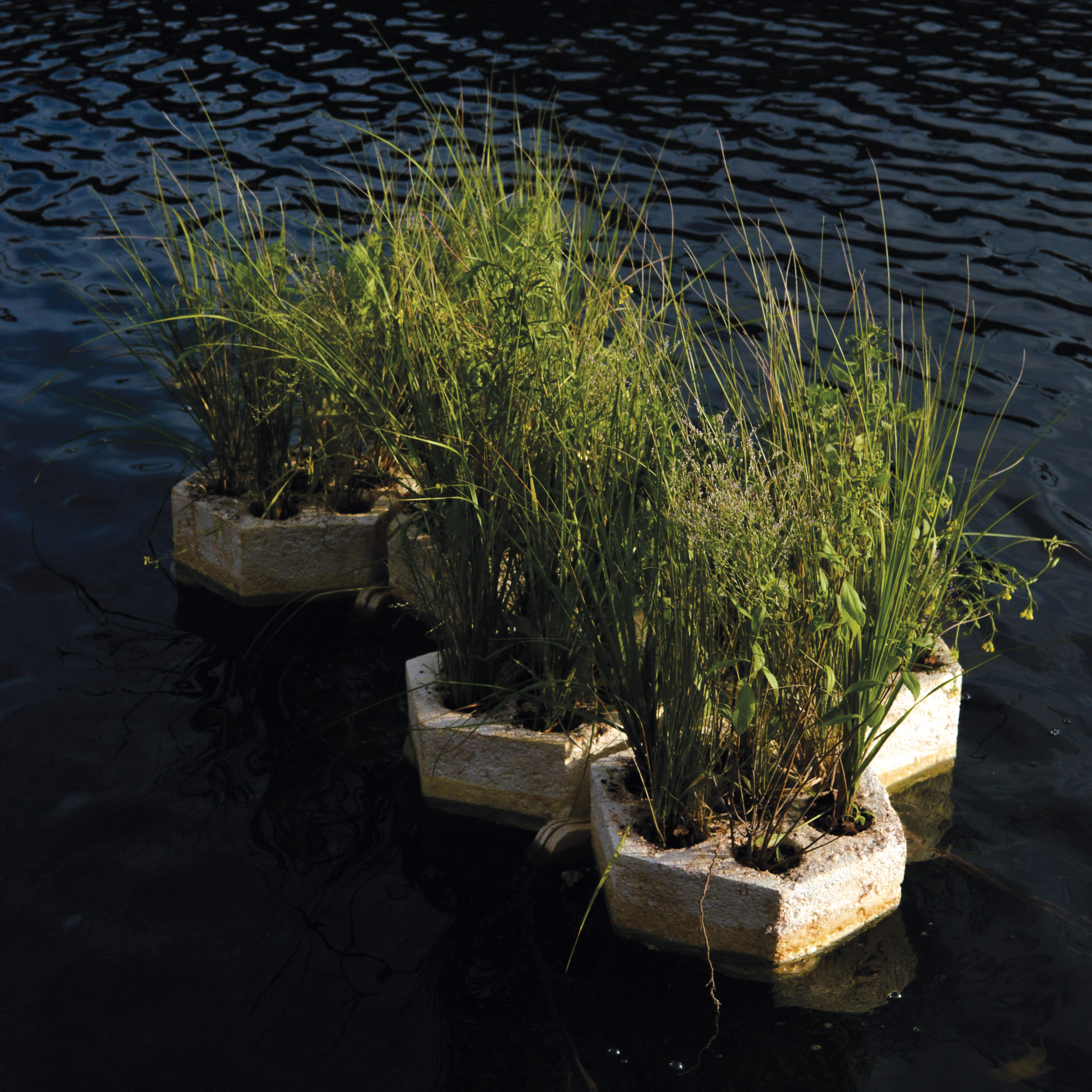
Ten RISD teams were named as finalists and ultimately, BIOPOD and Shellf Life were the college’s winners. Six projects by teams from design schools in the United Arab Emirates, India and the United Kingdom were also named winners. Going forward, all eight winning teams will connect with advisors and consultants who will help them navigate business development. For the RISD teams, this process began in January with a financial planning workshop hosted by former RISD faculty member Holly Howard, who specializes in helping startups grow their businesses.
“It has been an incredible honor for RISD to participate in the Sustainable Markets Initiative’s second Terra Carta Design Lab competition,” RISD President Crystal Williams says. “These RISD students and alums are putting our question-based approach to problem solving and solution finding into practice to envision a more equitable and sustainable world.”
For the founders of BIOPOD, the TCDL award is both validation and a pathway to bringing commu- nity-based water remediation strategies to the world. Team members Manini Banerjee 23 ID, Avantika Velho 22 ID, Malvika Agarwal 22 GD, Skylar Perez MArch 23 and Joel Yong 25 ID worked with senior research advisor and former Experimental and Foundation Studies faculty Katia Zolotovsky to make a product that offers a science-based, do-it-yourself approach to waterway and wetland cleanup tailored to the specific conditions of a given location. While many people might look at a river ecosystem that has been degraded by industrial waste and hope that someone else will take care of it, the BIOPOD team created a way to empower community members to crowdsource environmental data and foster a collaborative approach to environmental stewardship.
The group provides customers like community groups with customized educational and instructional kits so they can deploy biopods tailor-made for their specific locales. The pods are hexagonal floating “mats” made of the root system of the reishi mush- room. The mats have pockets that hold native wetland plants whose roots dangle into the water below. While the mat degrades slowly over time to release plants into the waterway, its material— the network of mushroom roots—filters the water, taking up heavy metals, oils, pesticides and other toxins.
“Mushrooms are really good at breaking down stuff,” says Velho. “They really do a lot of digestion outside their bodies; that’s their main goal in the food web. They’re like the decomposers of the natural world.”
BIOPOD piloted the program in Providence in 2023, working with the nonprofit arts organization WaterFire Providence to launch the pods into the Providence River during their annual Clear Currents Waterfire Festival. That partnership yielded synthe- sized scientific data on the efficacy of the modules’ natural remediation processes as well as proof of concept that BIOPOD can engage the public in citizen science, says Yong. Next, the team aims to launch projects in Goa, India and in additional sites across New England.
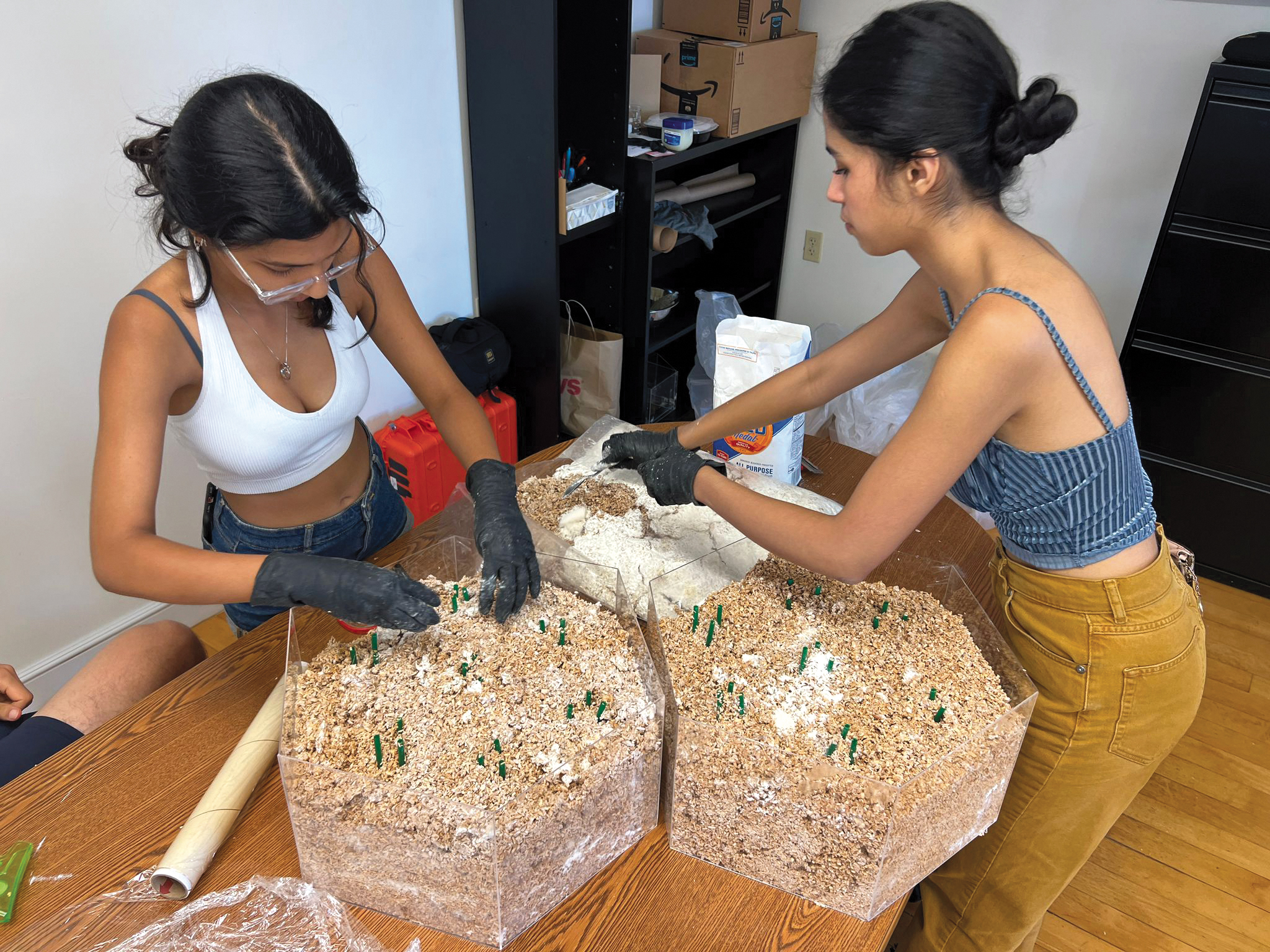
Shellf Life’s winning project also looks to the water. By reassessing the value and potential of the parts of mollusks that are commonly discarded, Shellf Life has developed innovative materials that can be used for a range of purposes while reducing seafood industry waste. Founded by Felicia Neuhof MArch 24 with team members Jason Connell MFA 24 FD and Aleza Epstein MArch 24, the group upcycles sea- shells and other seafood waste into furniture, table- ware, tiles and other home goods.
“Shellf Life is strong like concrete, elastic like steel, and beautiful like ceramic,” Neuhof says. Because mollusks purify water and absorb calcium carbonate as they grow, and because their shells can be used to neutralize acidic soil, “Shellf Life goes beyond net zero and presents an opportunity to fertilize soils, filter water and capture carbon as it grows and cures,” she adds.
One cubic yard of Shellf Life material, a calcium carbonate-based biomaterial made of local Rhode Island-sourced shells from oysters, mussels, and clams, diverts 831 pounds of shells from the landfill while providing material for natural linoleum, compostable furniture and much more. Use of the material, which can be mass produced or used in handcrafted work,can put a huge dent in the 46 million tons of shell waste the global shellfish industry produces annually.
Neuhof says, “Winning the Terra Carta Design Lab competition confirmed what I suspected—sometimes the most powerful innovations are the simplest ones. I look at our empty oyster, mussel and clam shells differently. Instead of seeing trash, I see everything we need: strength, beauty and a material that has been perfecting itself for millions of years. Now those shells that protected ocean life are protecting our homes, and our planet gets a little better and more beautiful with every seafood dinner.”
Words by Gillian Kiley

